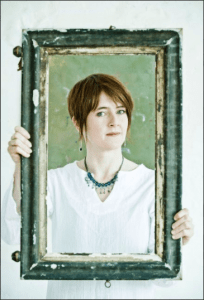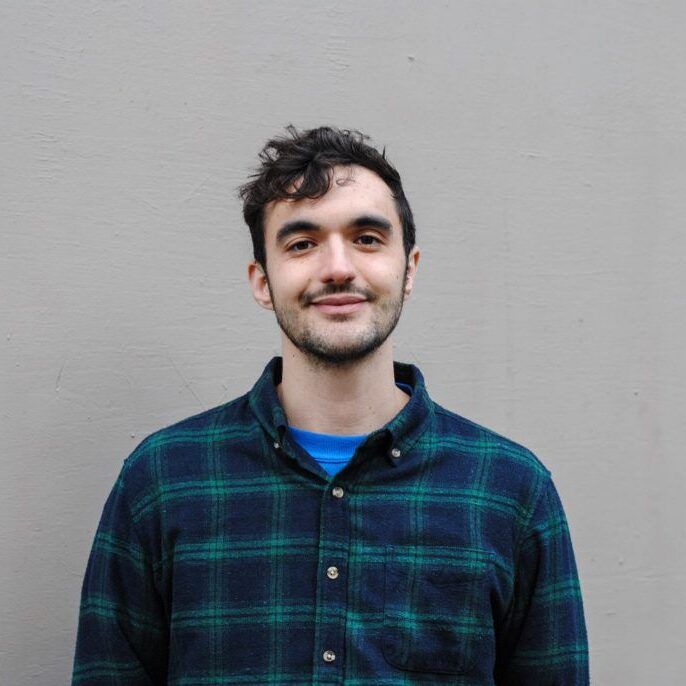Kat Jones of Stop Climate Chaos Scotland talks about the Climate Fringe, a new initiative to bring together the myriad events and activities planned to take place across Scotland in the run up to, and during, COP26, and how the challenges of coronavirus have brought together art, and activism in exciting ways.
Back in February Stop Climate Chaos Scotland were preparing for a frantic countdown to the COP26 climate talks, scheduled to be held in Glasgow in November 2020. Among other things we were planning to launch a website to bring together all the civil society-led events taking place across Scotland as the buzz of COP coming to Glasgow grew.
Just before we planned to go live with the website, however, coronavirus struck and a total rethink was needed. We repurposed our plans to create a hub for online events, with podcasts, blogs and webinars to highlight what’s going on in the Scottish climate movement. The Climate Fringe launched on 28th May, the day that a new date for COP was announced.
Since then, more than 100 events have been uploaded on the site and we are finding we are reaching beyond Scotland in engagement in the events and in the number of events that include speakers from the global south. The Climate Fringe is particularly aiming to inspire people to get involved through connecting people with creative approaches online, bringing forward the voices of those most affected by climate breakdown, and highlighting where artists and activists are working together.
ÚNA Festival is a case in point. This Glasgow-based arts festival links artists in Latin America and Scotland and has a focus on stories, myth and art, and how they connect us with the natural world.

Isabella Noero, the director of ÚNA, who is originally from Colombia, said,
“We found that moving the festival to online had its challenges, but we have also been able to bring in more artists from Latin America, and from less accessible locations, to the digital edition of the festival, while opening it up to audiences all over the world.”
2020 is the year is the Scottish Year of Coasts and Waters and ÚNA takes up this theme for the event which ran in July on their unafest.com platform.
“We are living in times where, under strict quarantine measures, the most direct contact to the natural world for many has been water. ÚNA brings music, arts and storytelling to transport us through different traditions and geographies: from the Scottish Highlands and Gaelic myth, to the rivers of the Amazon Rainforest. Two regions both separated and linked by the Atlantic ocean.”
ÚNA will be bringing artists from across Latin America to Glasgow during COP26 in November 2021 and this year’s event being online will has helped build their connections ahead of that. “Chile held the presidency of the 2019 summit and so the link with Scotland is particularly important” said Isabella, adding “The eyes of the world will be on Glasgow during COP and so we will aim to share the richness of Scottish culture and highlight the many similarities it shares with Latin America”

Karine Polwart, Scottish singer and composer, was part of UNA Festival which took a theme of nature and water
Creative Carbon Scotland has been taking an innovative approach to communicating during the pandemic. The organisation was set up to work with the arts and culture community on climate and sustainability, and has found creative ways of producing online events that break the usual panel discussion mould.
“Our next event will consist of a participatory public art work by Rosanna Irvine where participants will connect to devise collective manifestos” says Lewis Coenen-Rowe, Transformation Through Culture Officer at Creative Carbon Scotland.
They are also working with artist and games designer Matteo Menapace to create a workshop disguised as a role-playing game as well as a virtual ‘Museum of the FutureNow’ created by artists Jo Hodges and Robbie Coleman. “These events will allow participants to step out of their daily roles and to be more imaginative and playful in the process of imagining solutions to shared problems” said Lewis.
At Govanhill Swap-market, a space for swapping and sharing resources, artist-activist Ailie Rutherford has been running fortnightly online meetings for their local members.
“We are coming together to draw, sketch and discuss, around subjects of social justice, the economy and climate breakdown.” said Ailie. “The aim is to help people find space for creative resistance and action in times of physical distancing. And what’s really exciting is to see the ways people are connecting this work up to create really strong networks and trans-local collaborations. A lot of people are talking about the need for new radical imaginations; the need to collectively imagine a different way of being, living and working together. I think this is where art-activism becomes really important and useful.”
But taking things online is not the whole answer, and there are risks too. Ailie’s Swap market events have seen many new faces, many dialling in from across the globe, however Ailie found that at least half of their usual Swap Market members do not have access online.
“We have also needed to instigate a lot of offline ways of sharing and remote exchanges” says Ailie. “We’ve been using the Swap Market’s shop windows, local notice boards and poster sites to host art-works.”
Amid deep uncertainty over the pandemic a combination of online innovation and offline activities are essential if we are to engage people across Scottish society and get more involvement in climate and environment issues in the run-up to COP26.
We have 14 months until the biggest conference that the UK has ever hosted, with nearly 200 world leaders coming to Glasgow to discuss how to respond to the climate emergency. We cannot let the coronavirus crisis result in a lack of action on the climate crisis. This is an opportunity to have conversations across Scottish civil society and connect with the global voices most affected by climate breakdown. There are already so many events and activities to get involved with and we hope this will grow even more over the coming months.
We are inviting organisations and individuals to run events to engage even more people and to make them part of the Climate Fringe.





